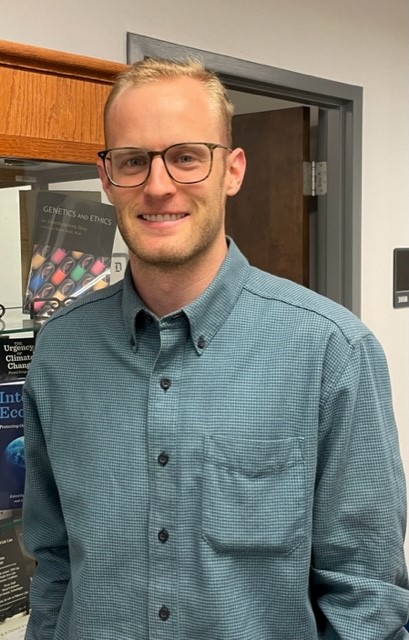Healthcare Ethics
Duquesne’s Center for Global Heath Ethics provides a number of unique scholarly and
professional training programs in healthcare ethics, among them four doctoral programs.
These programs—Ph.D. and DHCE programs in healthcare ethics and Catholic healthcare
ethics—are designed to prepare you for a future in academia, healthcare or a variety
of intersecting professions. You will focus on pivotal issues in healthcare ethics
and learn to understand these topics within the context of healthcare as a phenomenon
that connects people and the environment.
Through these programs, we cultivate academic excellence, ethically responsible judgment
and social justice in a global context. In addition to the more traditional focus
in healthcare ethics, as a student in either of these doctoral programs you will focus
on global health ethics, engage with experiences in other cultures and religions and
consider the connections between health, the environment, society and the economy.
These programs will set you apart intellectually and professionally, preparing you
to advance global discourse on healthcare ethics and advance your career. Whether
you go on to serve in a clinical ethics setting, work for an NGO or governmental body
or join teaching or research programs, you will be positioned to have a meaningful
impact on a global scale.
We offer a flexible curriculum and can accommodate distance students. The training
you receive will prepare you for a career in academia, healthcare or an array of interconnected
fields.
Course Requirements
The doctoral curriculum requires 12 courses (36 credits) beyond the master's degree. After comprehensive exams, both doctoral programs require 6 credits of dissertation hours. Students in the healthcare ethics master’s degree track who continue on in a doctoral degree program must complete 6 additional courses after all required M.A. courses, so that 16 courses (48 credits) have been completed before applying for the comprehensive examination.
The baccalaureate admission track requires 16 courses (48 credits) beyond the baccalaureate degree.
Ethics Rotation Program & Internships
Through the optional Clinical and Organizational Rotations in Ethics (CORE) program, you will receive an experience-based curriculum—in a supervised, step-by-step manner—that will train you with the scholarly knowledge and professional skills you’ll need to provide ethics services in healthcare. The curriculum focuses on integrating clinical, organizational and professional ethics across the healthcare organization while providing a mentored apprenticeship to train students to undertake clinical ethics consultations, including the pre-consultation phase.
Junior rotations (HCE 646, HCE 647) are intensely supervised and occur at UPMC Mercy Hospital, adjacent to Duquesne University. Senior rotations (HCE 681, HCE 682), in which you’ll function as an ethicist-in-residence, occur at UPMC Mercy Hospital or at another healthcare institution. The Center for Global Health Ethics has multiple partnerships with local, regional and national healthcare providers to facilitate these internships.
Internship duties include professional ethics education for facility personnel, ethics research, policy review or development on ethical issues and prospective and retrospective case consultation. Each 3-credits internship requires approximately 70 hours of work within the assigned facility.
The CORE program adopts an integrated ethics approach, as developed by the Veterans Health Administration, to implement the Core Competencies for Clinical Ethics Consultation.
Program Information
These doctoral programs offer the opportunity to explore healthcare ethics in a global context that will align your skillset with what is needed in healthcare organizations and beyond.
Degree
Doctorate
Program Requirements
The doctoral degree programs adopt the following course planner to enable you to track your coursework. All courses are 3 credit hours, and all course selections must be approved by your academic advisor. The only mandatory courses are HCE 649- Empirical Methods in Healthcare Ethics and HCE 659-Normative Methods in HCE. You may choose your remaining courses from the following list of courses and clinical rotations.
- HCE-643 End of Life Care Ethics
- HCE-645 Comparative Religious Bioethics
- HCE-648 Clinical Ethics
- HCE 649 Empirical Methods in Healthcare Ethics (required)
- HCE 650 Beginning of Life Ethics
- HCE-653 Genetics & Ethics
- HCE-654 Research Ethics
- HCE-655 Global Bioethics
- HCE-658 Intensive Research in Healthcare Ethics
- HCE-659 Normative Methods in Healthcare Ethics (required)
- HCE-660 Research Writing in Healthcare Ethics
- HCE-662 Organizational Healthcare Ethics
- HCE-690 Independent Study
- HCE-646 Junior Clinical Rotation I (CORE I)
- HCE-647 Junior Clinical Rotation II (CORE II)
- HCE-681 Senior Clinical Internship I (CORE III)
- HCE-682 Senior Clinical Internship II (CORE IV)
The Ph.D. degree is a research degree that combines academic and clinical education to train students in a systematic and critical manner to be scholars in the field. Hence, the Ph.D. dissertation focuses on appropriate research and writing competencies to be successful scholars in the field.
The DHCE degree is a professional degree that combines academic and clinical education to train students in a systematic and critical manner to be clinically oriented professionals in the field. Hence, the DHCE project is a practical endeavor that focuses upon the appropriate clinical and writing competencies to be successful professionals in the field.
A faculty committee (director and readers) is assigned to supervise you in the phase of doctoral writing. After the committee ascertains that your dissertation or project has been completed satisfactorily, there is an oral doctoral defense with the following possible outcomes: formal approval or the requirement to resubmit the text based on critiques at the defense.
Upon successfully completing the above, you will proceed to graduation, following the requirements of the university for submitting the doctoral text and planning for graduation.
Application Requirements
Submit the university application through the graduate application portal including a resume or curriculum vitae.
If you are in the process of completing a degree, you may have your college or university submit an up-to-date official transcript with your application to Duquesne University via email or by mail to:
Duquesne University
McAnulty Graduate School of Liberal Arts
600 Forbes Avenue
Pittsburgh, Pennsylvania 15282
If your undergraduate and/or graduate degrees are from an institution located outside of the United States, you must use a transcript credential evaluation service to obtain a course-by-course report. The official reports must be sent directly to Duquesne University from the organization you order through and will qualify as official transcripts.
An ethical contribution
In her dissertation, “The Ethical Contribution of Cultural Diversity as a Social Determinant of Health,” Pooja Patel examines how cultural diversity, as a social determinant of health, provides an ethical contribution when aligned with human life, dignity, rights and equity. She found that in the current and near future, the ethical contribution of cultural diversity as a social determinant of health will be vital to sustaining the flourishing of current and future generations.
About the PhD in Healthcare EthicsFAQ's
Learning Outcomes



